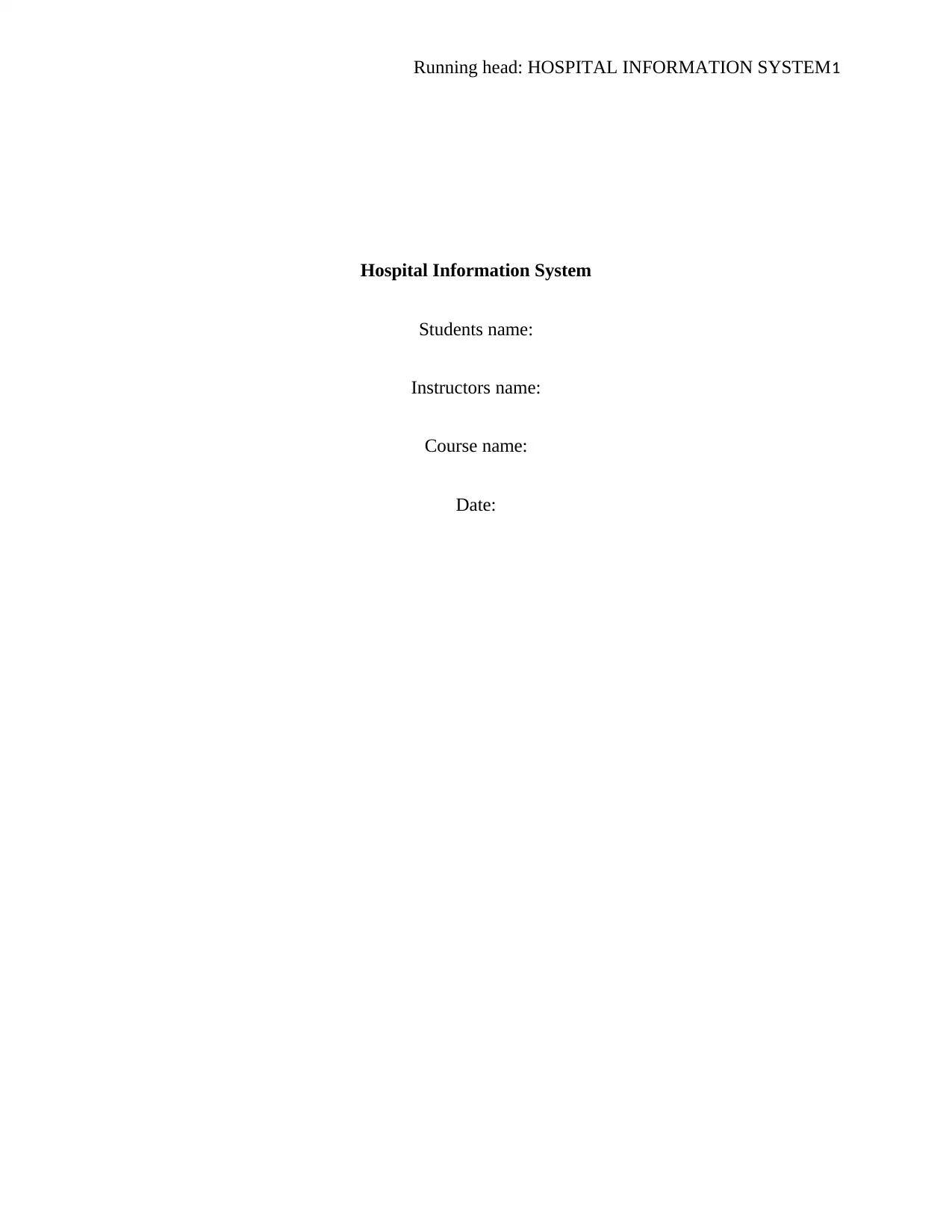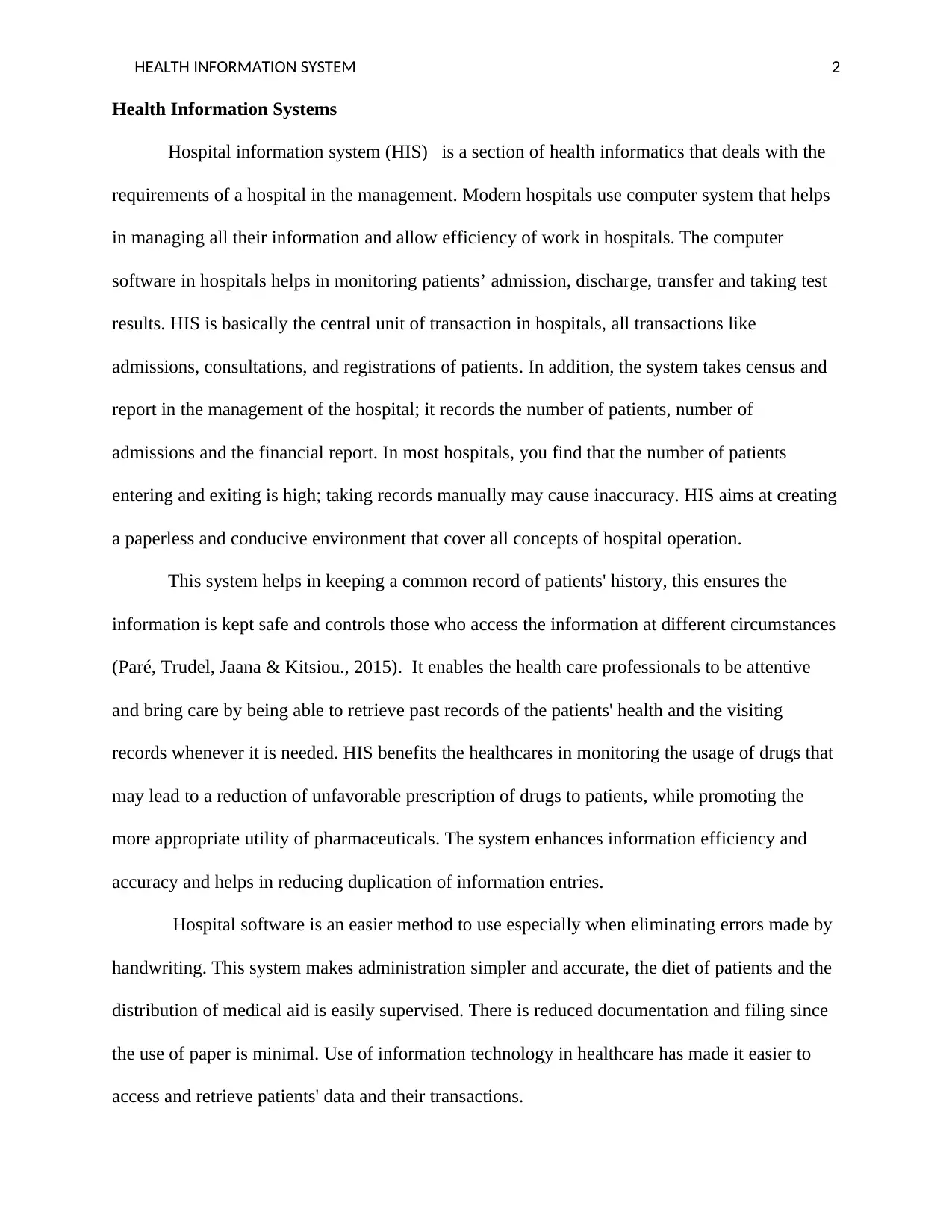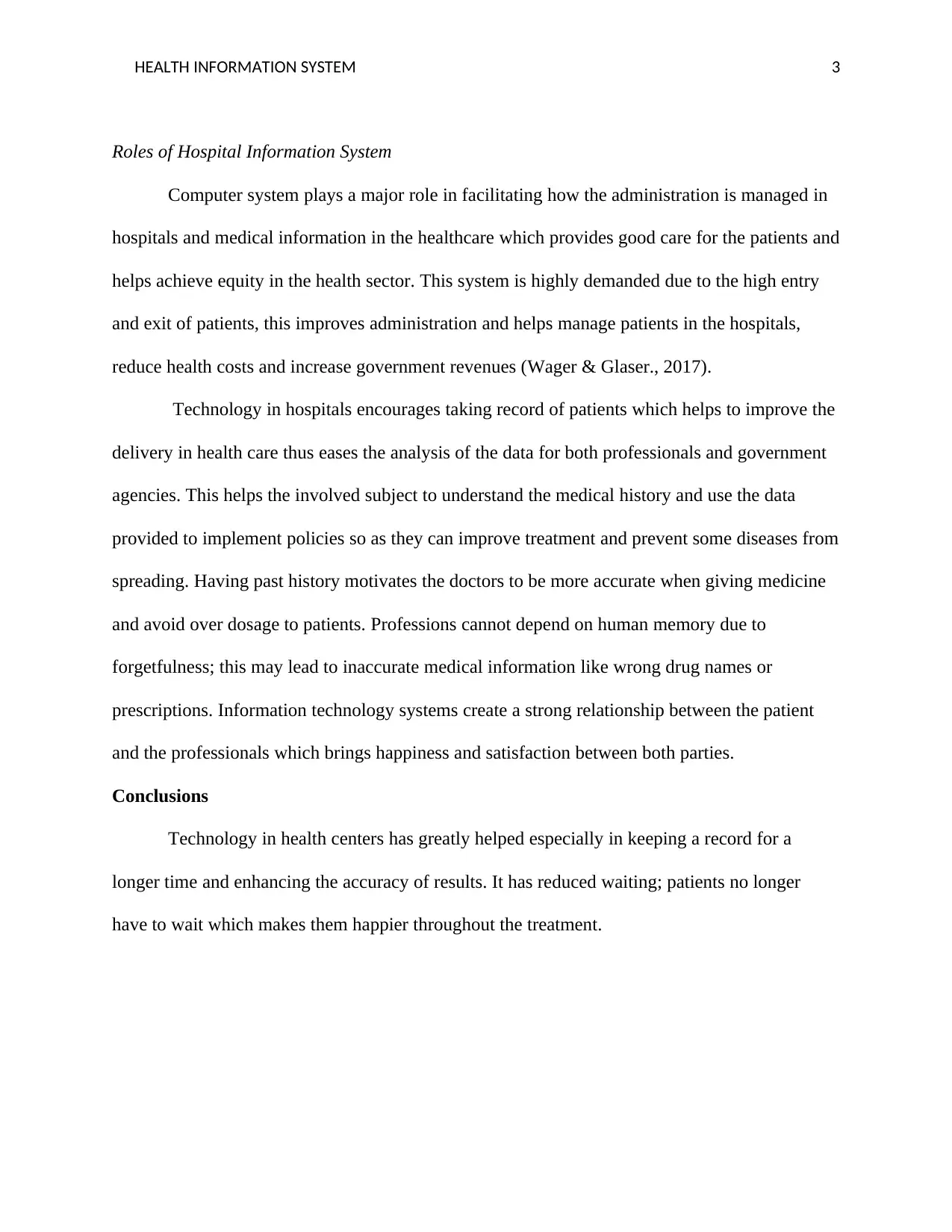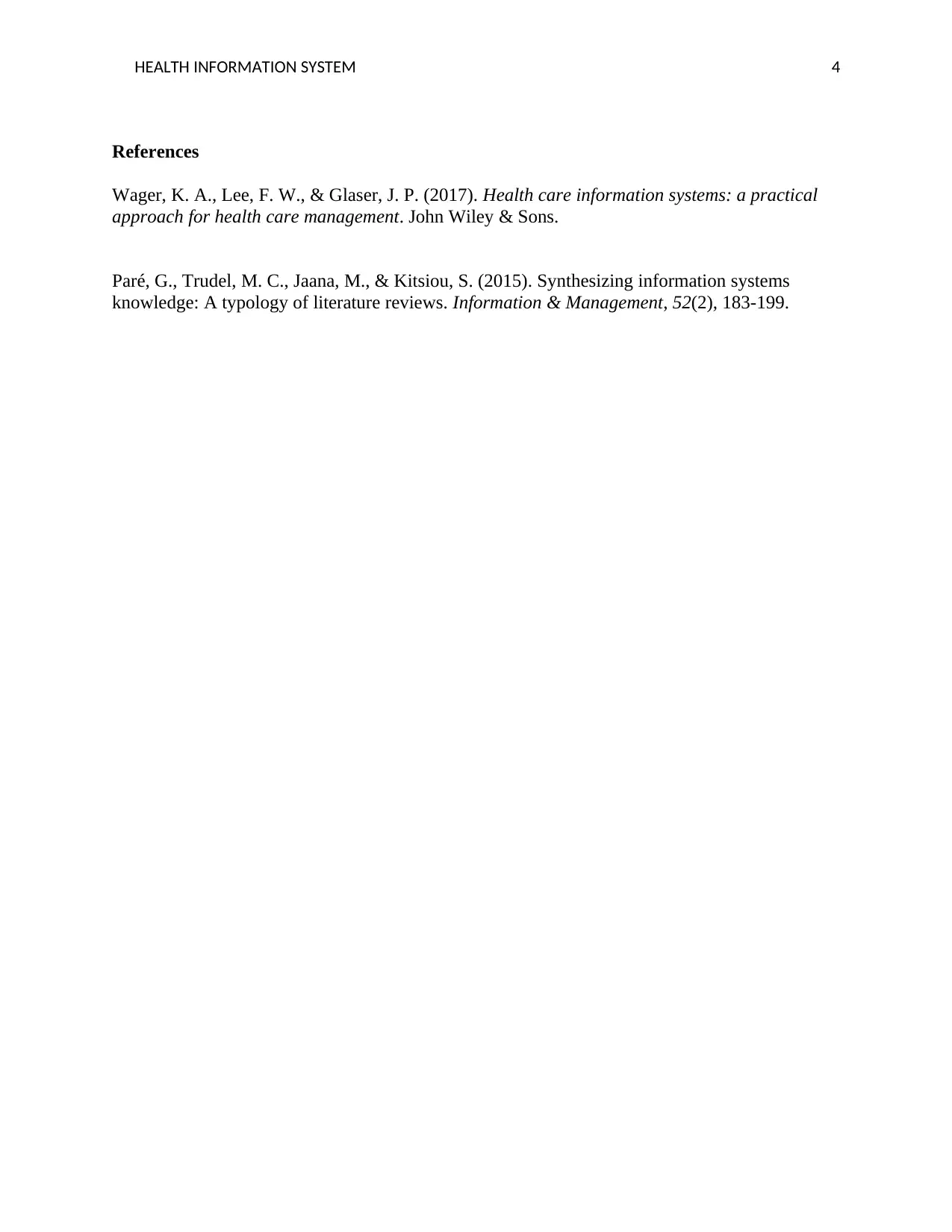Impact of Hospital Information Systems on Patient Care and Management
VerifiedAdded on 2023/04/07
|4
|637
|132
Report
AI Summary
This report provides an overview of Hospital Information Systems (HIS) and their role in modern healthcare management. It highlights the benefits of using computer systems in hospitals to manage information, monitor patient admissions, track test results, and improve overall efficiency. The report emphasizes that HIS creates a paperless environment, maintains patient records securely, and enhances communication between healthcare professionals. It also discusses how HIS contributes to reducing medication errors, improving data accuracy, and streamlining administrative processes. The analysis covers the major role of computer systems in hospitals, focusing on improving patient care, reducing healthcare costs, and increasing government revenues by improving administration and data analysis. The report concludes by highlighting the importance of technology in healthcare for long-term record-keeping, enhanced accuracy, and reduced patient waiting times.
1 out of 4










![[object Object]](/_next/static/media/star-bottom.7253800d.svg)